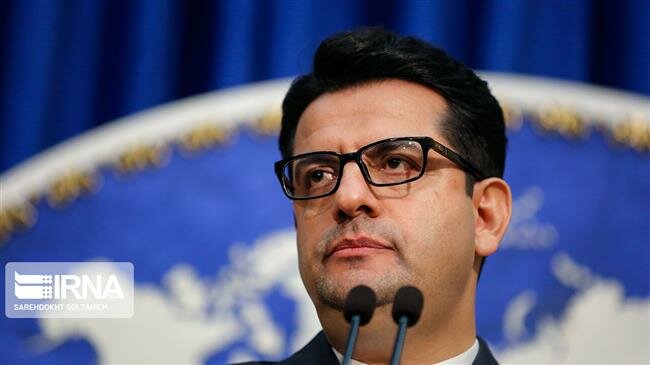In a statement on Thursday, Mousavi said such irresponsible and meddlesome remarks cannot remedy the negligence of certain European countries in fulfilling their commitments under the JCPOA and their passive stance towards the US economic terrorism against Iran.
“The world public opinion has not yet forgotten the country that armed former Iraqi dictator Saddam Hussein with chemical warfare, which was used against Iranians and their Iraqi neighbours during the war imposed (1980–88) on Iran,” he added.
Mousavi said the world still remembers how German riot police suppressed protesters on the eve of the two-day G20 summit in Hamburg back in July 2017, and how weapons are being funneled by some European states to the Middle East, where they have brought about nothing other than war crimes, destruction and massacre of women and innocent children as seen in Yemen.
“Berlin is expected to put honouring the fundamental principles of human rights on its agenda discreetly, comprehensively and neutrally, instead of taking unprofessional and biased positions,” he added.
Mousavi further underlined the Iranian government’s resolve to hear the different views and opinions of its people, and said, “The Islamic Republic of Iran sharply distinguishes enemies, those behind the murder of innocent people and their foreign sponsors from protesters during the recent unrest and riots in the country.”
“Based on the results of its probes and investigations, the country will make the necessary decisions in a bid to respect the Iranian people’s rights and ensure sustainable security,” he added.
Earlier in the day, Maas claimed that hundreds of people had been killed during the recent riots in Iran, and condemned security forces over use of force against rioters and anarchists.
The German foreign minister made the remarks in reaction to a question asked by a parliamentarian.
In mid-November, the Iranian government raised gasoline prices in order to moderate the national consumption rate, which stands at 110 million liters per day, 40 million liters above the maximum daily domestic requirement.
The move prompted protests in a number of cities that went largely peaceful but turned violent when armed riotous individuals took advantage of the situation to vandalize public and state property, and attack civilians and security forces alike.
No official death toll has so far been released, but the victims reportedly include both security forces and civilians.
